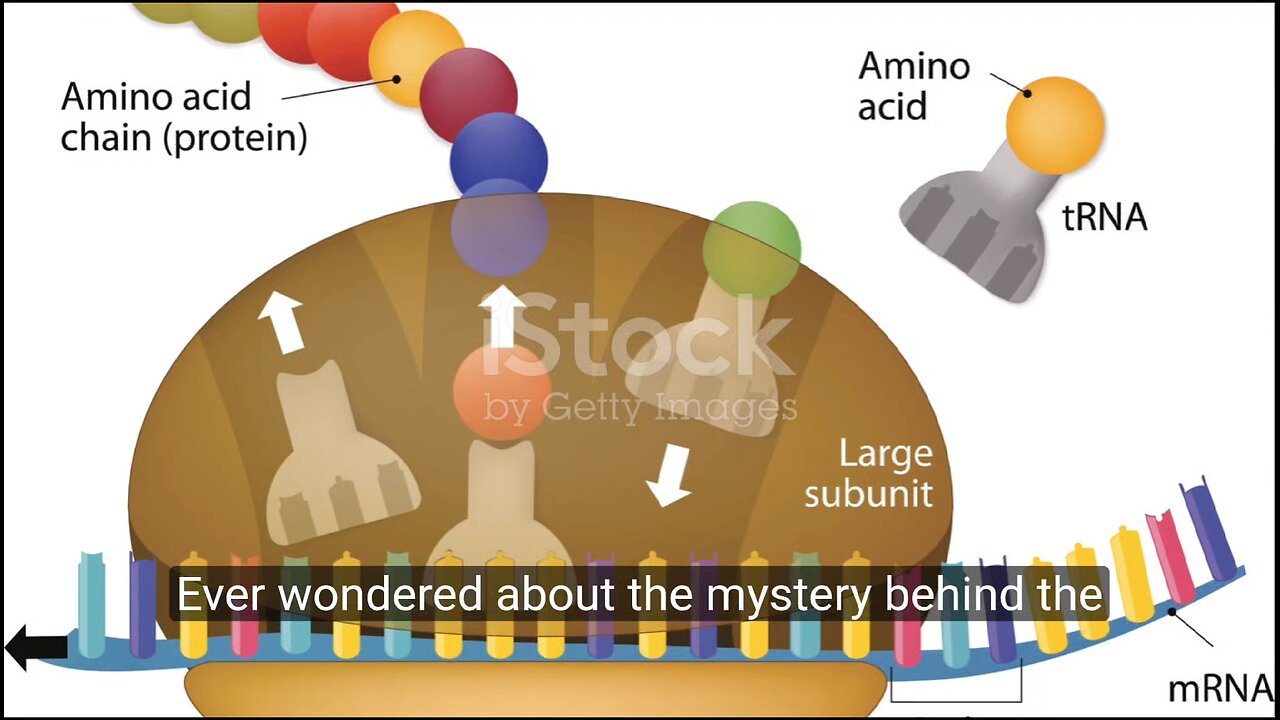Premium Only Content

The function of tRNA and its significance.
tRNA, or Transfer RNA, plays a crucial role in protein synthesis by facilitating the transfer of amino acids to the ribosome during the process of translation. Its significance lies in ensuring the accurate and specific incorporation of amino acids into the growing polypeptide chain.
Here's a breakdown of the role and significance of tRNA:
Amino Acid Transport: tRNA binds to specific amino acids in the cytoplasm and transports them to the ribosome. Each tRNA molecule is associated with a particular amino acid, and the amino acid carried by the tRNA corresponds to the anticodon sequence on the tRNA molecule.
Recognition of Codons: The anticodon region of tRNA base-pairs with the complementary codon on the mRNA during translation. This ensures that the correct amino acid is added to the growing protein chain according to the sequence encoded in the mRNA.
Facilitating Protein Synthesis: As the ribosome moves along the mRNA, tRNA molecules bring in the appropriate amino acids one by one, allowing the ribosome to link them together in the order specified by the mRNA code.
Accuracy in Translation: The specificity of tRNA for both amino acids and codons ensures the fidelity of translation. This accuracy is crucial for the proper functioning of proteins and, by extension, cellular processes.
In essence, tRNA serves as an adaptor molecule, linking the genetic information encoded in mRNA with the sequence of amino acids in a protein. Its precise role is vital for the accurate translation of the genetic code into functional proteins, influencing various aspects of cellular structure and function.
-
 LIVE
LIVE
BlackDiamondGunsandGear
6 hours agoAFTER HOURS ARMORY / Whiskey & Windage
57 watching -
 23:56
23:56
marcushouse
15 hours ago $4.49 earnedStarship Began the Demolition!? 🔥
3.22K5 -
 17:59
17:59
JohnXSantos
1 day agoI Gave AI 14 Days to Build NEW $5K/MONTH Clothing Brand
1.97K -
 LIVE
LIVE
DLDAfterDark
4 hours agoGun Talk - Whiskey & Windage - The "Long Range" Jouney - After Hours Armory
80 watching -
 9:37
9:37
Film Threat
7 hours agoSHELBY OAKS REVIEW | Film Threat
2685 -
 35:40
35:40
The Mel K Show
2 hours agoMel K & Dr. Mary Talley Bowden MD | Heroes of the Plandemic: Doing What is Right No Matter the Cost | 10-25-25
8.73K6 -
 3:06:20
3:06:20
FreshandFit
7 hours agoNetworking At Complex Con With DJ Akademiks
187K22 -
 LIVE
LIVE
SpartakusLIVE
4 hours agoThe King of Content and the Queen of Banter || Duos w/ Sophie
292 watching -
 1:47:12
1:47:12
Akademiks
4 hours agoLive on complexcon
29.6K4 -
 3:07:36
3:07:36
Barry Cunningham
6 hours agoCAN PRESIDENT TRUMP STOP THE STORMS? ON AIR FORCE ONE | SNAP BENEFITS | MAMDANI | SHUTDOWN DAY 25
31.8K27